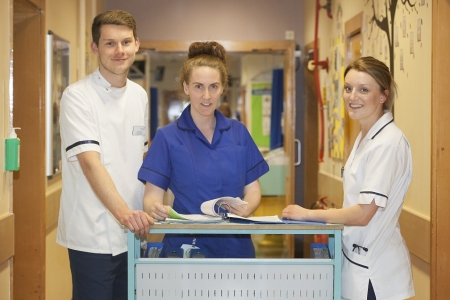
Health professionals at Doncaster and Bassetlaw Teaching Hospitals (DBTH) have celebrated 700 days without a single case of MRSA blood stream infection.
All three of the local hospital sites have gone almost two years without a hospital-acquired case of the infection and the Trust puts this success down to its ‘zero tolerance’ approach to healthcare associated infections.
Meticillin-resistant Staphylococcus aureus blood stream infection, or MRSA as it’s more commonly known, is resistant to several widely-used antibiotics, which makes it much harder to treat than most bacterial infections.
About one in three people carry the bacteria, on the surface of their skin and in their nose, and of these, around 1.3% of people will carry the Meticillin resistant strain. If an MRSA bacterium gets into the body through a break in the skin it can cause infections such as boils, abscesses or impetigo, with an infection in the bloodstream leading to serious conditions and complications.
Carol Scholey, Lead Nurse for Infection Prevention and Control said: “Almost two years without a single case of hospital-acquired MRSA bacteraemia is an outstanding achievement and great news for our patients and visitors. However we are not complacent and are continually looking to see what we can do further as we head towards two years without a case of MRSA.”
The Trust works hard to ensure all wards and services are compliant with hygiene and infection-control policies, as well as reviewing the use of any devices and treatment tools which can lead to an increased chance of developing MRSA. Above all else, the team have encouraged members of staff to be vigilant, looking out for symptoms of the bugs and acting upon any potential signs that could lead to further infection.
The Trust’s Infection Prevention and Control team have been working collaboratively with clinicians across the hospital sites to screen all patients for the bacteria and isolating those with a positive result. The Trust’s practice is to immediately begin what is known as ‘decolonisation’ which stops the bacteria before it can infect patients and cause harm.
Dr Ken Agwuh, Director of Infection Prevention and Control at DBTH, said: “Ensuring our patients are safe while they are in our care is a top priority, and improving our infection control measures, in every regard, is a crucial step in this process. Our Infection Prevention and Control team have been very proactive and, alongside colleagues at the Trust, have shown a real commitment to ensuring our patients receive the highest quality of care, within a safe environment.”
